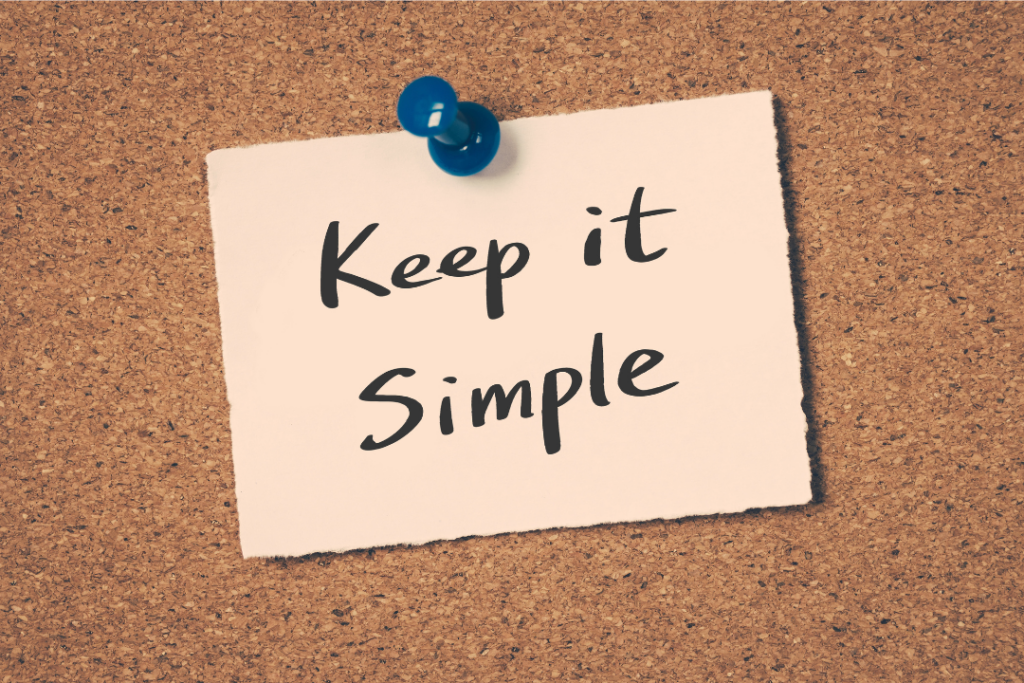( reading time: 3 min 2 sec )
Single people have often expressed to us, not because we said they need to budget, but because they ask questions like, “Being single, my income is more than my expenses, so why do I need to budget?”
We often meet that question with a question, but first, we typically reply that you don’t need to budget. It’s not that you need to, but you might want to. Budgeting because you need to is about a crisis. Budgeting for the benefits is how we give power to the spendable income that comes our way.
When starting budgeting, you might want to spend more liberally without being burdened with budget management. If so, consider looking at being a budget minimalist.

What is a budget minimalist?
Not all budget minimalists are spending minimalists. Minimalists do not want to waste time doing accounting, maintaining spreadsheets, or, in general, wasting time on details we don’t care about. We want to maximize living or relaxing. The goal is to avoid coming home from work and making home another job by extensive budgeting.
Less isn’t more when it comes to budgeting vs spending. Not budgeting doesn’t give us more money to spend. We only have as much money as we have. We cannot spend it in a second or third place when it is spent. It always comes down to choices.
The goal of a budget minimalist is to make choices simpler, to make it easier to focus on what we need and want. The simplest way to do this is to make a list of all our must-pay expenses and then enjoy choosing how to deal with the surplus.

Optimizing the must side of budgeting.
We have three types of must-pay items in our budget. The first is weekly or monthly items. These are regular expenses. The second is semi-regular expenses. Quarterly, semi-annual, and yearly expenses don’t seem to naturally get the same focus as our regular expenses. Third is our purely irregular expenses.
What are irregular expenses? These are the expenses that have no schedule. We know they are coming, and we can guess between a predictable first possible date and even a possible range of time it will be asking for our money. What we cannot do is assign a precise date today.

Make it Simple to Keep it Simple
You might think you must figure these all out in one long, stressful block of time. Few people who try that succeed. The stuff I forgot to budget for is a regular starter budget category that goes away with time. Start with regular expenses and take a break. Plan a time to come back and work out your semi-regular expenses.
Remember what you can. Think of it this way: if you were not doing a budget, you would not be learning the things you forget. If you cannot remember them now, you could forget them without a budget. Having the budget allows us to add those items as they come up, making life simpler by making them budget items.
The semi-regular expenses. We are sure you know you figure out when they are due. Next, you divide some of your income after your monthly expenses to collect this before it is needed. Waiting till a considerable expense arrives and entering crisis mode is not a winning option. Draining that month of all our fun money or going into debt to cushion our lack of preparation isn’t a win either.

Simple doesn’t mean the same.
If our budget is too simple, it doesn’t work. How many of us created an oversimplified budget and concluded that budgeting doesn’t work? The proper budget works in our minds. What works for us in month one may not work for month three. Seasons change, opportunities change, and perspectives change. A budget that always stays the same doesn’t do a good job of meeting our needs.
We don’t need to spend much time reworking or creating a budget from scratch. Well, if you lost your last budget, you will need to create one from scratch, so store it where you can find it.
Keep a journal or note when you see something you forgot or might want to change in the budget. Throw the note in with last month’s budget; it will be there when you plan next month’s budget. It saves time not remembering those things, simplifying the whole process.
Conclusion
Budget for the benefits it brings. Make it simple to keep it simple. Simple is simpler if we do it regularly enough to keep it simple.








